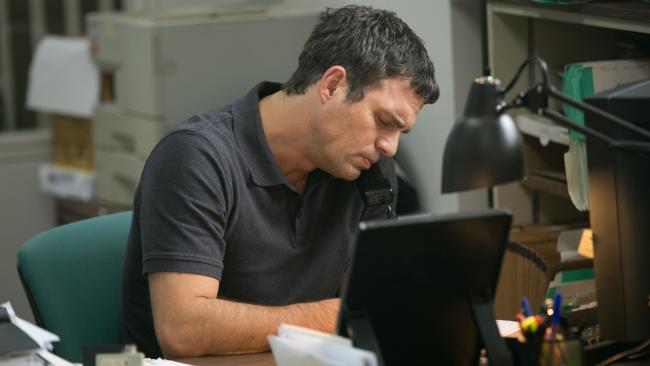Fr Kevin Dillon: Courageous Questions Put Catholic Church’s Perpetrators in the Frame
By Kevin Dillon
LAST Monday, events in three cities, thousands of kilometres apart, shared a common link. In Sydney, members of the Royal Commission into Institutional Responses to Child Abuse assembled to hear evidence from Cardinal George Pell. The focus was his time in Ballarat as a member of the Bishop’s senior Advisory Committee, the diocesan “Consultors”. In the Hotel Quirinale in Rome, Cardinal Pell faced cameras and microphones that took his evidence to the royal commission, and to innumerable internet viewers and listeners around the world. In the same room were around 20 Catholic Church-related sexual abuse victims. Most were from Ballarat. They had travelled there, along with families and supporters, intent on providing an “authentic” backdrop to the cardinal’s interview. And in Los Angeles, the Academy of Motion Picture Arts and Sciences gathered for the Oscars. In recent years, movies based on true events have featured strongly in the Best Picture category, either winning or being one of the nominees. Argo, Bridge of Spies, Captain Phillips, Selma, The Theory of Everything and The Imitation Game all originate from true-life stories, and most are reasonably accurate re-creations of the original events they depict. This year’s Best Picture Oscar went to Spotlight, a stunningly authentic story of the Boston Globe journalists who painstakingly uncovered sexual abuse and cover-ups over several decades within the Catholic Archdiocese of Boston. That the Oscar should be awarded to a superbly-crafted film focused on church-related sexual assaults on children — and the subsequent deceptions — at exactly the same time as international attention was turning to identical issues in Australia was an extraordinary coincidence. Both Spotlight, set in 2002, and the Rome/Sydney inquiries of this week centre around “Who knew what?”, “When did they know about it?” and “What did they do about it?” These are often central questions in many formal inquiries, with memory failure and widespread blaming of others being common features. The supplements scandal at Essendon Football Club was not dissimilar. Of course, memory can, and often does, fail. But humans have a capacity for wilful denial, which can blend with memory loss, and make establishing the facts extremely difficult. And without “the facts”, the guessing game can simply continue indefinitely. Sometimes the issues themselves are set within a powerful organisation — government, business, major sporting clubs, even churches — which hold considerable influence and sway over their personnel. That’s when the junior figures can easily be intimidated by the powers that be. It might be a committee of priests sitting around a meeting table, or a group of sportsmen in the team dressing room. A key challenge for each can be, “Who is going to ask the question we all know needs to be asked?” But the other question, of course, might be: “What will happen to me if I ask that question? Will it cost me my promotion, my popularity, my place in “the team”, even my job?” The answer might be: “Yes — it may cost any or all of these. But months or years from now, if questions are raised (as they often are), I will know that I asked the question that needed to be asked”. Were there young players at Essendon who wondered what substances were going into them, but were afraid of being disciplined or even discarded if they asked an unwelcome question? Were there young priests around committee tables who wondered why fellow priests were being continuously moved from parish to parish, but were fearful of the consequences if they asked “Why?”, and were then to be angrily told “None of your business”? Spotlight tells the story of courageous journalists who asked necessary, yet challenging, questions of powerful people. It is a modern cautionary tale of immense value. It has a place at any meeting table, in any organisation or group where people make decisions about the lives of others. Where suspicions are unclear — but demand to be clarified. Where questions may provoke anger or resentment — but still need to be asked.
|
.
Any original material on these pages is copyright © BishopAccountability.org 2004. Reproduce freely with attribution.
